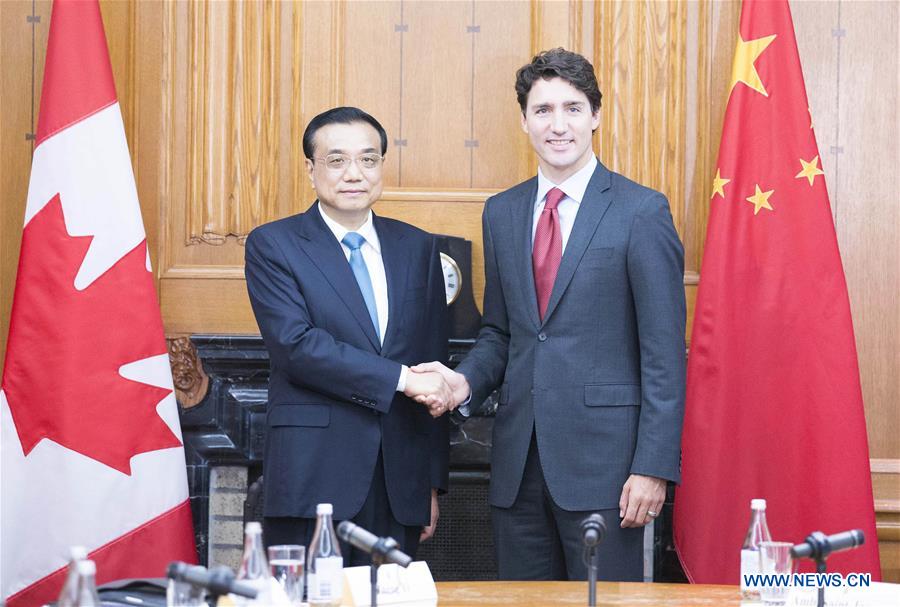Full coverage: Premier Li Attends UN Conferences, Visits Canada and Cuba
Full coverage: China’s Leaders
In Canada, Chinese Premier Li Keqiang has held talks with Canadian Prime Minister Justin Trudeau and other Canadian senior officials.
The two countries have agreed to initiate an annual dialogue mechanism between the Chinese premier and Canadian Prime Minister, starting this year.
Li said China is willing to strengthen exchanges with Canada at all levels. Li also said both countries can benefit from closer trade relations.
Trudeau welcomes Li's visit and the new dialogue mechanism. He said his country is willing to further expand its cooperation with China.

Chinese Premier Li Keqiang (L) holds talks with his Canadian counterpart Justin Trudeau in Ottawa, Canada, Sept. 22, 2016. (Xinhua/Huang Jingwen)
It was a meeting of familiar faces. Chinese Premier Li Keqiang saw Canadian Prime Minister Justin Trudeau in China just last month. And as they did then, the two got down to business.
Specifically, the issue of trade. China is Canada's second biggest trading partner, worth around $50 billion. Trudeau said he and Premier Li agreed on Thursday to try to double that number by 2025.
Trudeau said, "We are pleased to have witnessed the commercial signings today that will help achieve this goal. We know that there's a huge amount of untapped potential in our commercial relationship."
"This new trade target will benefit Canadian workers and business owners, while creating new, well-paying jobs."
China also wants to open talks on a bilateral Free Trade Agreement. But many Canadians remain suspicious of free trade, in general, and of China, in general.
Trudeau's openness to a possible extradition deal with China has been met at home with criticism, and concern over the potential for executions.
A quarter of China's 100 Most Wanted are said to be on Canadian soil. China wants them back, and has defended its judicial system.
Li said, "Extradition requires coordination and consensus from both sides. China has signed extradition treaty with more than 40 countries, including some developed countries in Europe. Both China and Canada are open to talk on this issue."
Paul Evans is an expert on cross-Pacific relations, at the University of British Columbia.
He said, "Fundamentally, what Mr. Trudeau and his government is trying to say is that we need to live together. It's not fundamentally matter of changing China, but living with China."
"And that's a new story for Canadians. It's going to take a little bit of time. There's a missionary impulse here. But building a relationship in a 21st century way, that's where I think Mr. Trudeau wants the future to go. ."
Both sides say, despite their differences, these frequent high level exchanges should set the tone for more frequent low level ones. And, ultimately, a better tone for better ties.















